Here’s how to heal digestive issues naturally, including Leaky Gut, SIBO, IBS, IBD, Crohn’s disease, ulcerative colitis, celiac disease, dysbiosis, constipation, diarrhea, allergies, and more! In my interview with Dr. Garrett Smith, ND we discuss how Toxic Bile Theory not only makes sense of each digestive condition, but offers a framework for healing them.
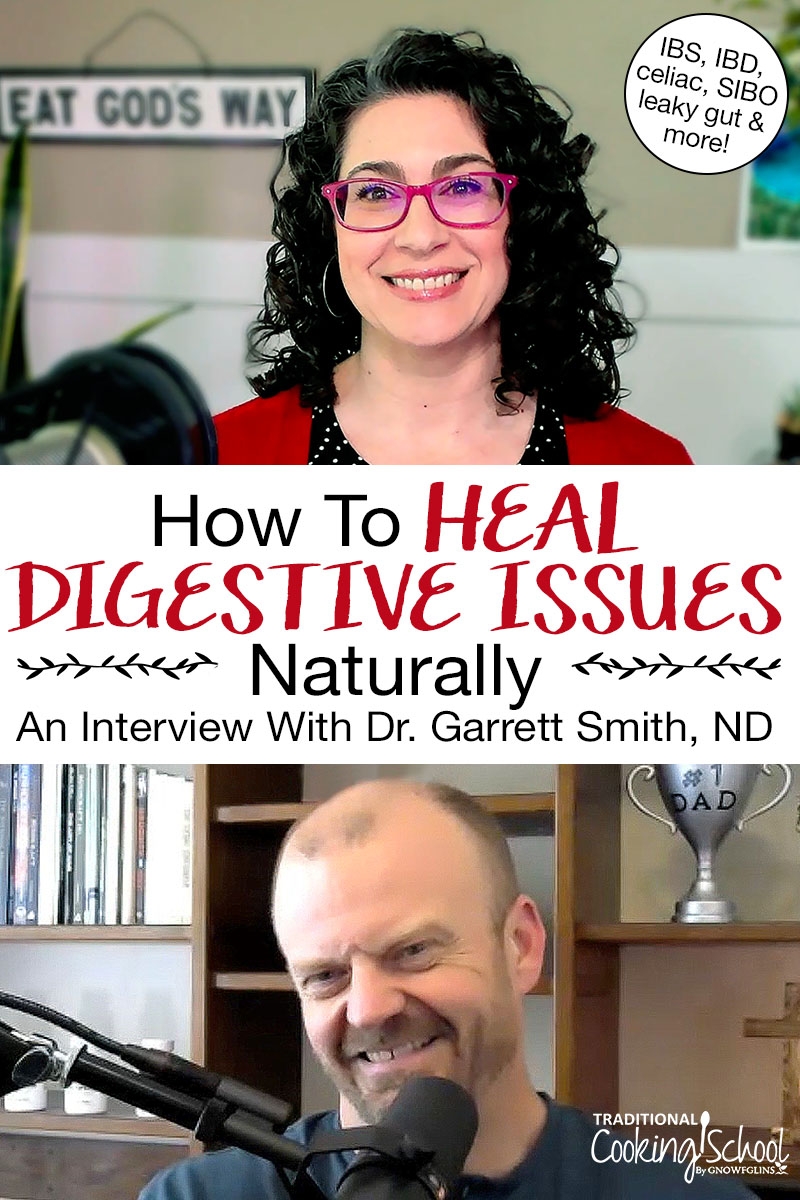
Bloating, cramping, gas, bleeding, burning, constipation, diarrhea, fatigue, rashes… not being able to eat what you used to without feeling absolutely horrible… yuck.
Such is the misery of having digestive issues. It’s no fun!
You might be surprised to hear this, but in 2021, I developed digestive problems. Beyond chronic constipation and feeling more and more tired, I started getting painful digestive cramps, gas, and bloating, increasing throughout the day and building up to misery at night.
I concluded based on the severity and duration of symptoms that I was suffering with Irritable Bowel Syndrome (IBS). I was also suffering with histamine intolerance that caused itching, headaches, and hives.
By eating strict low FODMAP and low histamine (eating only a handful of foods), I was able to lessen my digestive and histamine symptoms. Yet, if I strayed, the symptoms came back.
Yet, I’m writing this now in 2023, well on the path to healing, and able to eat more and more foods all the time. Not worrying about my digestive system so much. If you’ve struggled with any of this, then you know what I mean by worrying about it. It’s a pain!
How was healing possible when so many have to get more and more strict as the years go by? By following the information that you’re about to hear (or read) in my interview with Dr. Garrett Smith, ND from NutritionDetective.com.
He has joined me before to talk about healing skin conditions and hormone balancing, but today I have asked him to share about digestive issues. It’s an issue near and dear to my heart because of all those months (actually, years) I struggled with my digestion despite doing everything right (or so I thought!).
Digestive trouble is what led me to seek Dr. Smith’s help in the first place, but actually he’s helped me with more than that in the little over the year that I’ve been working with him. (You can listen to my full story here.)
Dr. Smith, known on social media as the Nutrition Detective, is a licensed naturopathic medical doctor in Arizona. He has a Bachelor of Science in Physiology with a minor in Nutrition. He’s worked in the medical field for over 15 years. Currently, he practices medicine virtually and sees patients through his private consults and online community, the Love Your Liver Network.
His approach is unique because he takes a look at a person’s individual vitamin and mineral metabolisms through simple hair and blood tests. I can’t think of another doctor who is so thorough and careful to take everything about his patients into consideration. It’s so refreshing! Based on the test results, he helps his patients remove toxins and improve nutritional deficiencies to help them heal from the simplest to most debilitating of issues.
In this interview, we’re going to look at how addressing our toxin and nutritional status can heal our digestion. If you or someone you know struggles with digestive issues like IBS, IBD, Crohn’s disease, celiac disease, constipation, diarrhea, and/or so much more then please listen to — or read or watch — this podcast interview with Dr. Garrett Smith from NutritionDetective.com to learn how to heal digestive conditions.
In this article:
- how each digestive condition is ultimately linked to the Toxic Bile Theory of Disease
- why Vitamin A is not a vitamin, and how it affects the digestive tract
- how to support your liver to heal digestive issues naturally
- and much more!
Please set aside distractions and watch or listen to the video below. Or, if you prefer to read, the complete transcript plus my summary notes are below!
The Background
When Dr. Smith first became a naturopathic physician, he did what a lot of doctors do and started grabbing on to different theories — going through phases of thinking that all human disease is connected to one cause. Perhaps candida, or heavy metals. The problem is, and anybody who has tried a variety of different diets or supplements to fix their health struggles can attest to this, most things don’t work! Maybe it worked for one person, but it doesn’t work when you try it.
In his own words…
I think that if what people are doing in medicine (mainstream or alternative) was actually working, there wouldn’t be so many sick people. I think that a lot of the things people do for their health are actually making them sicker. Even the things championed on the internet like Vitamin D and Vitamin A!
I’ve always been very big on two specific parts of the naturopathic oath, the first being: “To do no harm.” I’m not here to make people worse. So I prescribe very simple things that shouldn’t cause problems — diet, very basic supplements of essential nutrients, and helping people get rid of basic toxins.
The second is: “To teach the principles of healthy living and preventative medicine.” I am here to teach people what to do for themselves so they can learn their body and they can see what works for them and what doesn’t. That’s my philosophy.
Is it possible to heal from digestive conditions?
Are digestive problems a lifelong sentence? Dr. Smith answers…
No, they’re not. I find that gut issues seem to be one of the first to heal for most people because the gut actually turns over its cells very quickly. If we start getting the right programming into the new cells, then they are quickly able to replace the old cells.
One exception to that is auto-immune conditions, like celiac disease. I discuss how autoimmunity is a deep toxicity state in this livestream. Your immune system doesn’t just get dumb — there’s a reason for it. Maybe the body is trying to get toxins out of cells. But even auto-immunity can get better, it just takes time. Undoing decades’ worth of toxicity and nutrient deficiencies is a marathon, not a sprint.
Why do we have digestive problems?
After going through all the different phases himself, and beginning to recognize patterns, Dr. Smith believes the theory that is very close to, if not THE unifying cause of medical problems is the Toxic Bile Theory.
This is the idea that chronic disease is caused by an excess amount of toxic bile in the body, either leaking where it shouldn’t or simply being excessively toxic. We’ll explain why bile is so toxic below, but the gist of it is that the liver manages bile production and flow. When cholestasis or liver injury happens (through things like exposures to toxins, whether plasticizers, pesticides, supplements or certain medications, etc.), the normal bile pathway can be disrupted.
Most people can pinpoint a time when their digestive problems got worse. Maybe they had to take a medication, or maybe they went on an extreme diet. Maybe it was a supplement they took. In all of these cases, it is likely that liver injury occurred.
In essence, Toxic Bile Theory makes sense of Leaky Gut Theory, all the different gut microbiome theories, and the gut problems that are usually attributed to them. We go into more detail below, and you can read even more about Toxic Bile Theory here.
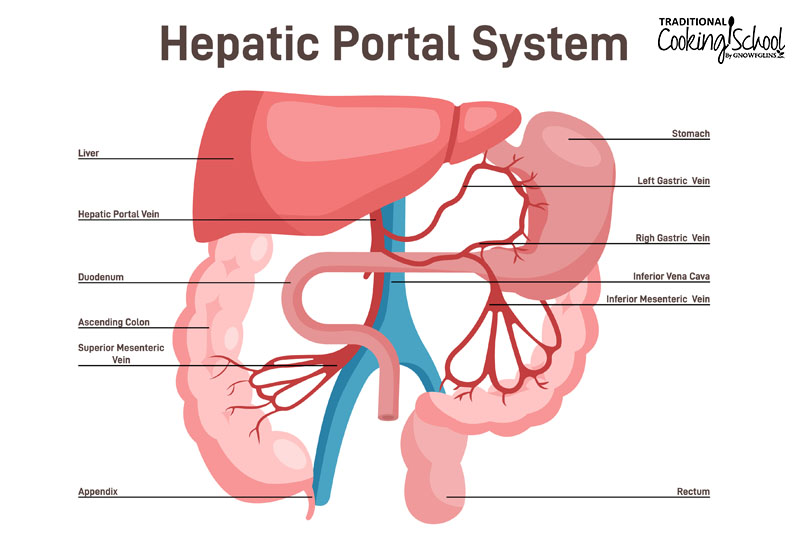
The Toxic Bile Theory of Disease
According to Dr. Smith…
The liver does three major things in your body. First, the liver filters toxins out of blood to protect your other vital organs (heart, brain, etc.). Everything you put in your body, for better or for worse, has to be processed by the liver.* It all contributes to the wear and tear on your liver.
Second, the liver is a storage depot for toxins. It accumulates lead, mercury, cadmium, arsenic, Vitamin A (which I don’t believe is actually a vitamin), copper, manganese… lots of things which I believe are often not needed by the body and are toxic to the liver. If it can’t get rid of them fast enough, your liver has to hold onto them.
Think of it like this: If you have so much work to do that you’re not keeping up, papers are accumulating on your desk. You can’t not do the work, so you go through it as you can. You’re accumulating papers or emails. Your liver is accumulating toxins. Your goal, as time goes on, is to hopefully cut down on that pile of work and get it done correctly so it doesn’t cost you your job. If you just threw the papers everywhere and didn’t have them in order, you’d cause other problems. If you lost the papers, you’d cause problems. So you have to keep them, and organize them. The liver does the same thing; it stores toxins for later processing.
Third, the liver is a sewage or waste processing plant. People think that once a toxin goes to the liver, the liver detoxes it and it disappears. No. The liver changes the form of things, sometimes into something less toxic, sometimes into something water-soluble so it can go into the blood and then to the kidneys. But the liver also does something called bio transformation, which is where it takes something that was less toxic to begin with, and as it goes through the detox process, it actually makes it into something more toxic.
The biggest example of this is alcohol. The ethanol in alcohol gets processed into acetaldehyde by the liver. This is what causes a hangover the next day, or in extreme cases, alcohol poisoning. The same thing with methanol poisoning. The liver turns methanol (wood alcohol) into formaldehyde, and that’s what can kill people. Vitamin A (retinol or carotenoids) actually goes through the same detox pathways as ethanol and methanol, but it is turned into retinoic acids. Retinoic acids come with huge side effects, which you can read about here and here.
*Of the minimal supplements I do like to prescribe, I use the minimal effective dose. We want to use the minimal amount that yields the maximum benefit. This protects the wear and tear that your liver undergoes.
The same is true of your kidneys. Every bit of water that you drink is being run through your kidneys. You are not an infinite machine. There’s only so much water that your kidneys can filter, and every bit of water that they do filter is going to have some impurities in it. There will be wear and tear on your kidneys if you’re drinking water all day long. Only drink what you need. Our grandparents did not carry water bottles around all day unless they were hiking the Appalachian Trail or something.
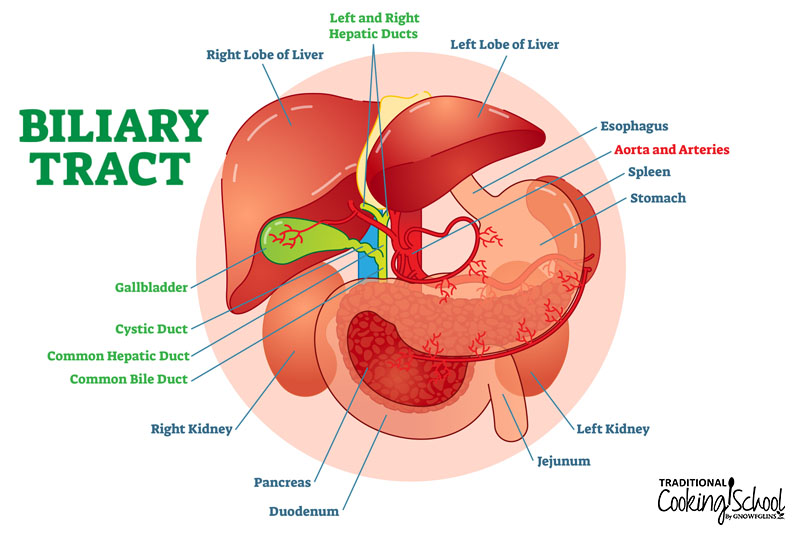
Leaky Gut
At some point, the liver has to get rid of these toxins. It has processed them and stored them, but it can’t keep storing them forever, so it puts them into bile. Bile is the most toxic fluid in the human body. It is full of heavy metals, fat-soluble toxins, glyphosate, BPA and other forever chemicals, and more — anything the liver wants to get rid of.
Where does this toxic bile go? Ideally, we want it to go into the bile ducts, into the intestines, and out through the poop. This is your biggest and best detox pathway. Only once the toxins have left your body have they truly been detoxed.
And yet, on the standard American diet, about 95% of bile is reabsorbed from the intestine into the portal venous circulation, and then eventually it travels back to the liver to go through the whole process over again. This loop is called enterohepatic circulation. It means only about 5% of toxic bile is actually excreted and detoxed when people are eating the standard American diet. What we eat affects how much bile we excrete, and therefore how many toxins we can get rid of.
It would be great if bile stayed in this loop of liver-intestine-portal vein-liver, but it doesn’t. It’s the most toxic fluid in the entire body, right? So, it damages pretty much everything it touches… which is all of the intestinal tract except the stomach. Research shows it can damage the very liver cells that make bile. It can damage the bile ducts that carry it to the intestinal tract. If bile leaks up into the stomach, it can cause GERD or acid reflux. This is how Leaky Gut happens.
You’re not supposed to have any bile in your bloodstream, but if it damages the gut lining and leaks through or it leaks into the stomach and is absorbed directly into the bloodstream, it can then travel anywhere. Everywhere in your body that has blood, which is everywhere, can be damaged by bile full of toxins. Your brain, your bones, your heart, your digestive system, and your skin (which is what we covered in my last interview with Wardee).
Here’s how Vitamin A specifically can contribute to Leaky Gut. In a nutshell, Vitamin A is converted by the body into retinoic acid. Retinoic acid is known to melt away layers of skin, which is why it’s an ingredient in many skincare products such as chemical peels. It’s no wonder it can damage the gut lining, too, allowing food and toxins to leak into the bloodstream.
How to Heal Digestive Issues
Gut Dysbiosis
Dr. Smith explains why having balanced gut flora is very important…
According to Toxic Bile Theory, bile acid composition is one of the big things affecting the health of the intestinal tract. I call it the “recipe” of the bile. For instance, how many things can you make out of flour, eggs, salt, and water? Different recipes yield different doughs by using different ratios of the same basic ingredients. This is the same idea.
You can make normal “good” bile. But if it goes into your intestines and you have a messed up gut biome (dysbiosis), your gut bacteria can turn your (normal) primary bile acids into secondary bile acids. These are the toxic ones that can cause cholestasis (leaking bile) or liver injury.
If you’ve ever taken a probiotic and you had drastic results but weren’t sure why, this is why. The beneficial bacteria changed your bile composition. Bacteria can process bile and make it more or less toxic for your situation.
In Toxic Bile Theory, there are two ways you can improve your health: 1) make your bile less toxic by changing its composition (improving gut flora, consuming less toxins, etc.) and 2) keep the bile where it’s supposed to be instead of leaking throughout the body.
Supplementing with Probiotics
Should we be supplementing with probiotics to achieve healthy, balanced gut flora? Dr. Smith answers…
I think of probiotics as seeds. You’re trying to grow the right garden in your gut.
If the right things are not already growing in your garden, you need to look at your soil. Soil is made up of toxicity and nutrients. Is your soil toxic? Does it need a certain nutrient? Are there too many weeds (bad bacteria) growing? Stop putting in the toxins, and start putting in the nutrients. If the “soil” of your gut is right, when you start planting seeds (probiotics), eventually they will grow and reproduce.
I do like to supplement with probiotics, but only the right type for the right person and for the right amount of time (more details below). If you keep throwing a certain type of seed into your garden, eventually they are going to sprout, and they’re going to crowd out the other plants. In the same way, if you keep taking the same probiotic but it’s not helping, you may shift your gut biome in a direction you don’t want it to go.
If, on the other hand, you have to keep taking the same probiotic over months and years to feel better, your soil is bad. The seeds aren’t growing in it and you have to keep replanting. Get your soil right, and the seeds will not only grow, but reproduce, and you won’t have to take them repeatedly forever.
Finding the Right Probiotic for You
One of the cornerstones of Dr. Smith’s approach is: “No shotguns.” Examples of shotguns would be multi-vitamins, or in this case, probiotics of many different strains. Instead of using a “shotgun” and hoping for the best, he strives for an individualistic approach that provides each person with what their own body needs. He says…
The internet loves cultured and fermented foods. Are they right for everyone? Not necessarily. They are high in Lactobacillus bacteria, which may or may not be the type of bacteria that you need. In my Love Your Liver community, I have an article about how to use your symptoms and tendencies as an indicator of which type of probiotic you should supplement with.
If you want to try a probiotic, Lactobacillus or Bifidobacteria are good places to start (not at the same time).
I like to give a new strain of probiotics at least two weeks to settle in. Think about it: When you clean out a place, it gets messier before it gets better because you have to take all the old stuff out. Probiotics are the same way. It’s okay to have some manageable, negative symptoms in the beginning. If the symptoms don’t start improving within two weeks, that particular strain of bacteria probably isn’t for you.
If you’re taking a probiotic and you don’t notice any improvement, stop taking it. Alternatively, if you experience some negative symptoms but you also feel better in certain ways, that would be a sign to keep taking it.
Again, the eventual goal is to not have to supplement with probiotics. They should ultimately settle into your gut, establish themselves, and then you don’t have to keep reseeding your garden.
Small Intestinal Bacterial Overgrowth (SIBO)
Even though it would seem that toxic bile is always a bad thing, Dr. Smith explains that it does have a function in the body…
It has been shown that when there is not enough bile in the small intestine, you get overgrowth of bad bacteria. Where is the bile, if it’s not following its normal pathway of liver-intestine-portal vein-liver? The clue is that people with SIBO have all sorts of systemic symptoms elsewhere. So the bile is in the bloodstream, wreaking havoc elsewhere in the body. And because it’s not in the intestines, bad bacteria is growing there. You can look this up. Researchers have created SIBO in dogs simply by making bile go to the wrong places.
If we can get the bile to go back where it is supposed to be, that is going to fix the problem. This is one of the few times where taking bile acids orally (such as ox bile) might be an option for somebody to help get bile into their intestines. But to fix the root cause, you’d need to 1) heal your liver so it’s making bile again, and 2) make sure your bile isn’t leaking elsewhere in the body.
People with SIBO can end up on antibiotics for years and years to treat the bacterial overgrowth. This may help them feel better in the short term, but remember that the bad bacteria isn’t the underlying problem. The real problem is the presence of bile where it shouldn’t be, and the absence of bile where it should be. In the long run antibiotics can cause liver injury, which ultimately allows bile to keep leaking, and people can experience a worsening of their symptoms.
Irritable Bowel Syndrome (IBS), Constipation, Diarrhea
According to Dr. Smith, there’s yet another role that bile plays in the digestive tract, but it needs to be just the right amount — not too much, and not too little.
In one study, researchers measured how much bile was in the poop of different groups of people: a control group, a group of people with IBS and constipation, and a group of people with IBS and diarrhea. The constipated people had about 200 units of bile in their poop. The control group of people had about 500 units of bile in their poop. And people with diarrhea had about 1200 units of bile in their poop.
It’s like the bile touching the intestines is the trigger for the intestines to move the poop along. When there isn’t enough bile in poop, people have trouble pooping. Where is the bile if there isn’t enough of it in the intestines? Well, either the liver isn’t making it, or the bile is getting stuck in the liver and slowly accumulating (leading to fatty liver disease), or it’s leaking directly from the liver into the bloodstream (intrahepatic cholestasis… read more here). You’ll often see constipation and hypothyroid issues together because bile of a certain composition leaking into the bloodstream can be connected to hypothyroidism.
If, on the other hand, there’s too much bile, the intestines get rid of the poop too quickly, wasting nutrition and causing diarrhea. The biggest thing I recommend for diarrhea is charcoal. Diarrhea responds really well to charcoal because it soaks up bile like crazy.
Fiber and Constipation
Fiber can be tricky! Does it help constipation, or does it make things worse? Dr. Smith explains…
Soluble fiber generally gels when it is exposed to water. So you’ll recognize things high in soluble fiber. When you make refried beans, if you let them sit, they harden into a little block. That’s the gelling quality of beans. If you cook oats and let them sit, they turn into a little oat brick. People use apple pectin to thicken jams and jellies. Psyllium husk, if you mix it with water, turns into psyllium jello.
When you eat it, soluble fiber does two main things in the body. First, it triggers a bile release. Second, it soaks up bile. The more soluble a fiber is, the better it is at soaking up bile. Following the standard American diet — not a high fiber diet — only about 5% of your bile stays in the digestive tract and is excreted. If you eat more soluble fiber, that percentage goes up because the fiber is able to soak up more bile and keep it in the digestive tract to be pooped out. This makes soluble fiber a key part of detox.
Now, there’s a caveat. People with chronic constipation and intrahepatic cholestasis (liver injury where the bile leaks directly from the liver into the bloodstream) — so that there is no bile in their digestive tract to stimulate pooping — may get even more constipated if they eat a lot of soluble fiber. When they eat fiber, their intestines send a signal to the liver saying, “We just ate soluble fiber.” The liver goes, “Great, let’s make some bile and dump it.” And it does, but the bile goes straight to the bloodstream instead of the intestines. So these people still can’t poop and feel even worse.
In people whose bile actually makes it to the intestine, soluble fiber can help. Again, this is where we have to treat the individual. Some people feel better eating very little fiber, and others feel better eating a lot.
Another nuance is if you eat so much fiber that it soaks up all the bile you have, and there’s none left to stimulate your intestines to poop, you may feel very uncomfortable. Or, say you eat so much fiber that it triggers your liver to dump more bile than it can soak up, and the bile starts leaking other places. That would also make you feel worse.
Yet another consequence of too much fiber for your body… Generally in nature, things start growing in stagnant places. Algae grows in a stagnant pool of a creek. Toxins accumulate because they aren’t able to flow through. Think of your gut the same way. If you’re eating so much fiber that your poop is not moving well, your digestive tract is stagnant. Soluble fiber is prebiotic (food for bacteria). Just because something is prebiotic, doesn’t mean that it only feeds good bacteria. If you start accumulating soluble fiber in your gut, bad bacteria may take a liking to it. The fiber not only feeds a dysbiosis, but once the bacteria eat the fiber, the toxic bile that was bound up is released.
Men make more bile than women. This means men have a tendency toward diarrhea, whereas women have a tendency toward constipation. The sexes also have tendencies toward different dysbiosis in the gut. Of the two, which is least likely to have a good outcome if they overdo it on soluble fiber? Women. So, ladies, be very careful with the soluble fiber. Even 2 to 5 grams might really slow things down for you.
The soluble fiber conundrum is making sure that you’re not doing too much. But if you feel better eating a lot of fiber, then do that. I generally cap it at 30 grams of soluble fiber per day. I don’t see much benefit past that.
Pooping is the master key to detox. In a perfect world, we should poop once for every full meal that we eat. Just like babies! Babies are supposed to poop once for every feeding they do.
Inflammatory Bowel Disease (IBD), Crohn’s Disease, Ulcerative Colitis
According to Dr. Smith, people who produce more bile are more prone to inflammatory conditions such as IBD, including ulcerative colitis and Crohn’s disease.
Some people produce more bile than others. These people have the tendency for loose bowels, diarrhea, and even bleeding of the intestines where the bile is eating away at the gut lining to the point of damaging the blood vessels.
In my opinion, IBD is essentially chronic diarrhea. Somebody in my Love Your Liver Network brought up a probiotic called LactoSpore that helped them with their IBD. When I looked into it, I found that it significantly reduced diarrhea and improved depression in people with IBD who struggled with both of those symptoms (source).
We already know that probiotics can change bile composition. In this case, LactoSpore changes the recipe of the bile so that isn’t irritating the intestines to the point of diarrhea.
Celiac Disease
One theory circulating about celiac disease is that it’s actually glyphosate toxicity from non-organic wheat. Could that be true? Dr. Smith says:
Sure. Stephanie Seneff has written several papers showing that glyphosate inhibits several specific cytochrome P450 detox enzymes that turn most toxic forms of Vitamin A into less toxic forms of Vitamin A. In other words, glyphosate inhibits Vitamin A detox.
In another study, researchers tried to create a mouse cell model of celiac disease. They couldn’t get the model to work until they added retinoic acid (Vitamin A) to it. It seems that Vitamin A toxicity is a critical factor in celiac disease. Celiac disease is all about the gut lining (the villi) being damaged, right? Gosh, what did we just talk about that eats away at skin? Vitamin A. And what has to be present for celiac disease to be replicated in mouse models? Vitamin A!
In yet another study, researchers measured how much bile was dumped in people with celiac disease when they ate gluten, compared to people without celiac disease when they ate gluten. The celiacs dumped much more bile than the control group did.
One of my patients with severe celiac disease is slowly getting less and less sensitive to gluten. Now she’s not laid up for three days if she’s exposed to gluten dust.
In fact, Dr. Smith believes that all auto-immune conditions (such as celiac) are fundamentally rooted in toxicity. For more information, please read this article he wrote in 2019.
Food Allergies
How do food allergies fit into all this? Dr. Smith answers…
A lot of the things I’m teaching make more sense than the stories people have been told about their health. Like the idea of allergies. One person is allergic to certain foods. Why isn’t that food toxic to all humans? Is it just that that person has a leaky gut caused by the toxic bile eating away at the gut lining, allowing toxins and food particles to go through and stimulate the immune system?
There’s quite a bit of research showing that the more Vitamin A infants and young children are exposed to (whether it’s cod liver oil, multivitamins, fruits and veggies, etc.), the more allergic to they become to other foods. This is why you can have people who take out all sorts of foods for a month or two, replace them with new foods, then test allergic to the new foods even though they were originally allergic to the old foods. It was a Leaky Gut problem in the first place. The root cause of the allergies was never addressed.
Hemorrhoids
I’m sure we’ve all caught on by now. To treat digestive conditions, including hemorrhoids, you have to treat the root cause. Dr. Smith explains that varicose veins, spider veins, and hemorrhoids are all related to the liver being congested (full of toxins and can’t keep up with them).
Hemorrhoids are the varicose veins of the rear end, to put it simply. Why do varicose veins happen? Anything below your heart has to work harder against gravity to get blood back up to the heart. This is why spider veins and varicose veins happen in your legs.
Think of blood vessels as a ladder with a valve at each rung. As the heart pumps and squeezes the blood up, it pushes through the valve. Then as the heart relaxes, the blood starts falling, and the valve snaps shut. Over and over again. If there is too much back pressure on the valves, they blow out after a while. These are called spider veins, and you can see the dark, purplish, bluish stagnant blood in them. The blood is stagnant because the valves aren’t there to move it up the ladder.
Varicose veins are the same concept except it’s happening in a bigger vein. Hemorrhoids are varicose veins specifically in the rear end, due to the liver being congested. The big portal venous system comes from the digestive tract. The digestive tract ends at your bum. All the blood is going back up to the liver. If the liver is congested, the venous blood heading to the liver is like heavy traffic getting stuck at a traffic jam. The blood backs up along those blood vessels and puts more pressure on the valves. If you blow out a valve near the rear end, that’s a hemorrhoid. It’s a very tender area — you can wipe too forcefully and damage blood vessels down there. As we’ve already discussed, toxic bile can damage blood vessels, too.
If you’re having significant amounts of red blood, that’s generally a hemorrhoid. If you’re having dark, black-ish blood in your stools, that’s generally from higher up in the digestive tract.
Where to Go from Here
If you’d like to work with Dr. Smith to heal your digestive conditions naturally (or work on other health issues), visit his website NutritionDetective.com. He offers virtual consultations as well as his Love Your Liver program for those who want to do it themselves. If you work with him directly, Dr. Smith offers twice weekly virtual Office Hours for ongoing support and to answer any questions as you work on detoxing and becoming nutritionally replete.
In his own words: “I can’t say that I will fully fix things during the initial consult. It’s a marathon, not a sprint. We have lots of tweaking to do along the way.” That’s why Office Hours are so helpful — the follow-up, the getting your questions answered in real time, the back-and-forth.
- Love Your Liver program (included free if you do a consult with him)
- Nutrition Detective YouTube channel (weekly livestreams)
- Dr. Smith’s consultation program (with him or his PA, Nathan Weins, all virtual)
- Dr. Smith’s supplements
- Wardee’s testimonial after following Dr. Smith’s Lover Your Liver program for about a year (so far)
You can also email [email protected] to ask questions!
...without giving up the foods you love or spending all day in the kitchen!

2 free books:
Eat God's Way
Ditch the Standard American Diet, get healthier & happier, and save money on groceries...
We only recommend products and services we wholeheartedly endorse. This post may contain special links through which we earn a small commission if you make a purchase (though your price is the same).
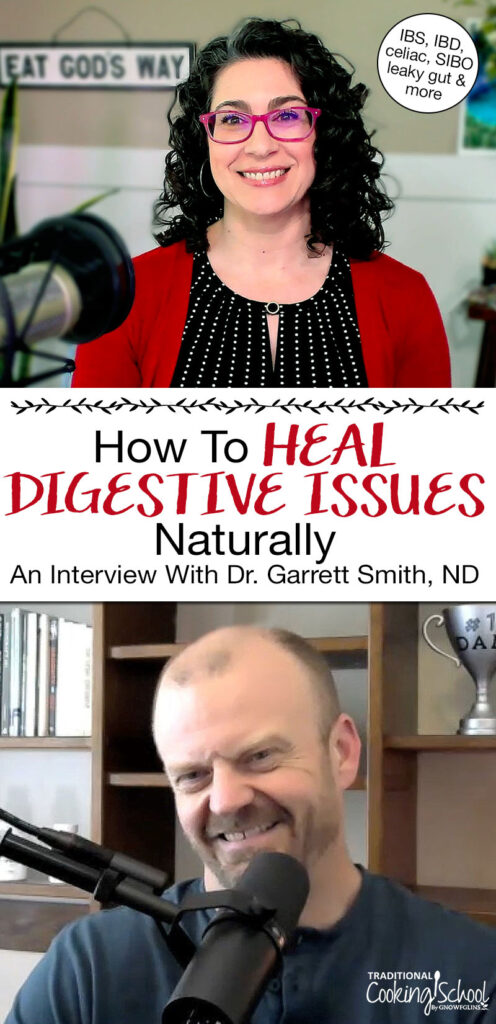
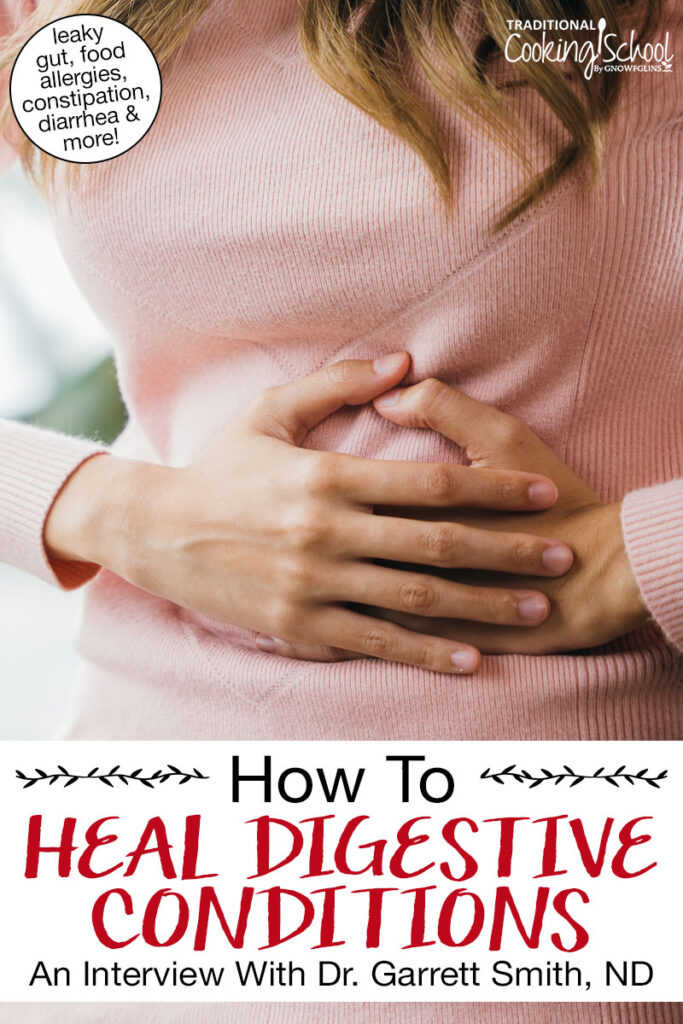
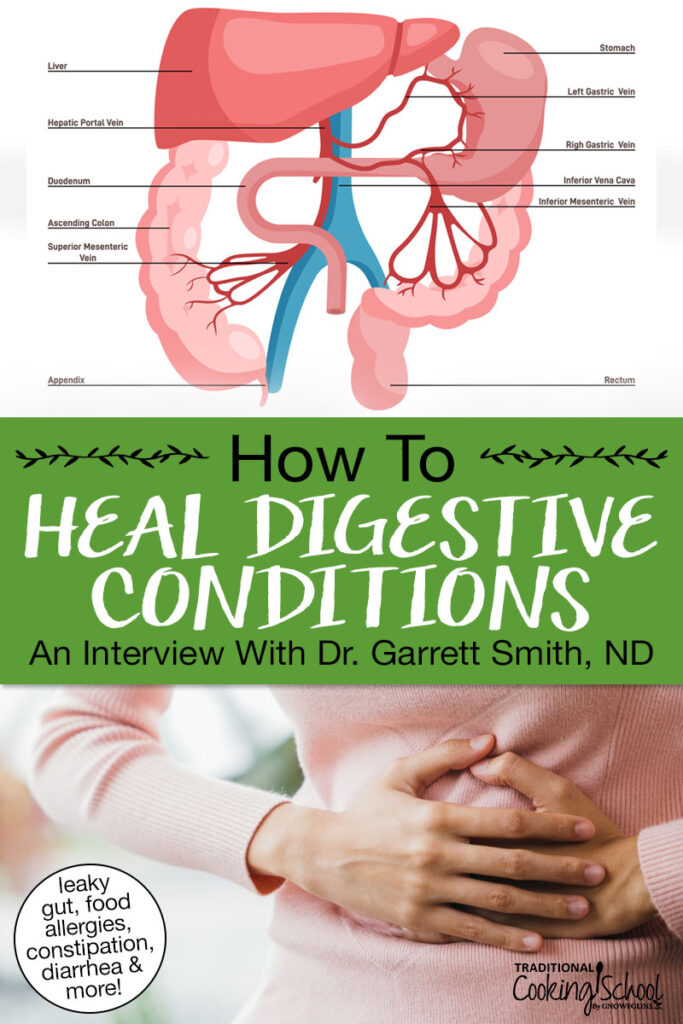
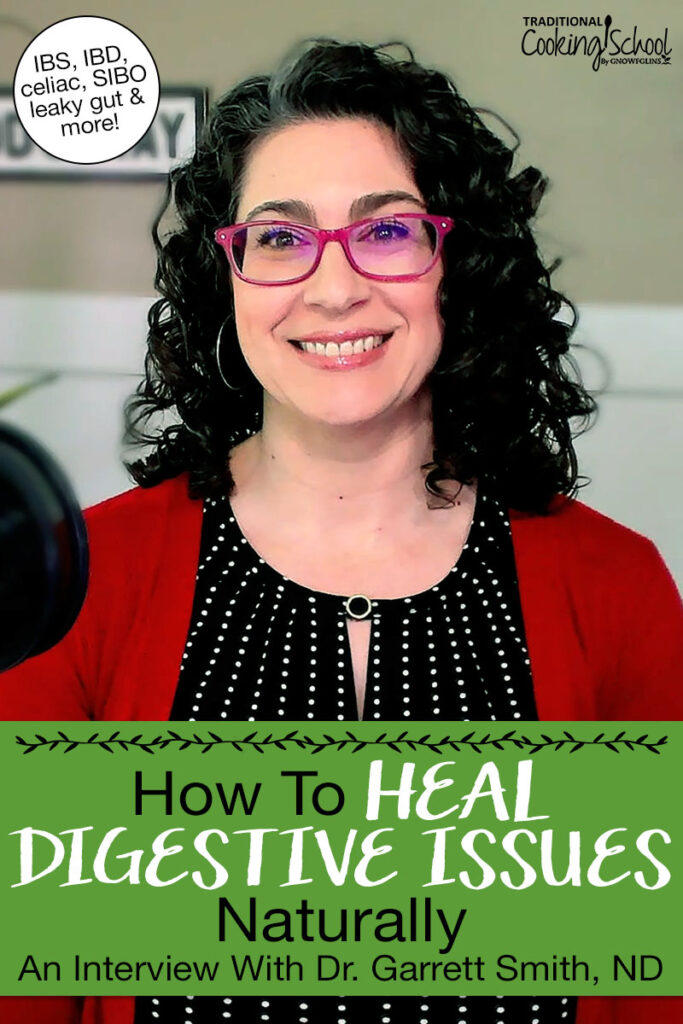
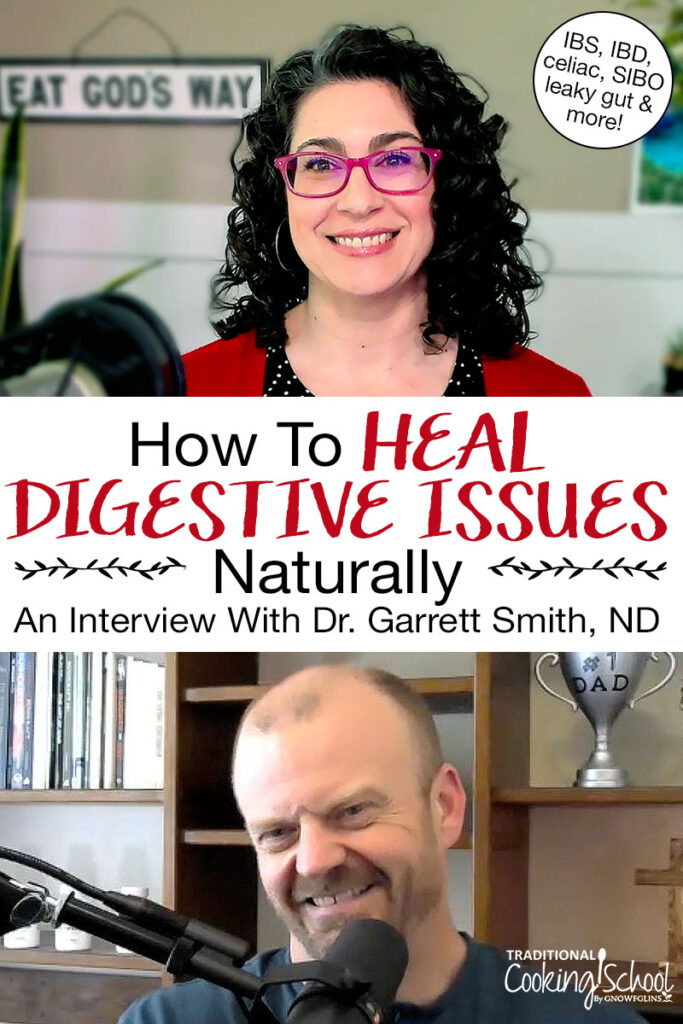


That was very interesting and I was especially more convinced than ever on the importance of individual healthcare. The garden analogy is great. However, vitamin D is very important to the immune system. I was disappointed that he mentioned that as a fad. God created a perfect vitamin D absorption method in sunlight, if anyone is opposed to supplements. However, some people are not able to get enough vitamin D because of their geographic location. For instance, I cannot get any from the sun in the winter and my asthma becomes worse. I then very much need high-dose supplements. Also fasting (and good re-feeding practices) are very powerful for the immune system and even the gut!! And don’t forget the GAPS diet!
Hi Tami! Thank you for sharing! We didn’t explore that too much in this podcast, but I know he would agree with you. He was referring to the “take your Vitamin D supplements” fad, not God’s natural way of getting Vitamin D from sunlight. Getting enough sunlight is essential for health!
For those who can’t make enough Vitamin D from sun, he recommends using a sunlamp such as this: https://traditionalcookingschool.com/sunlamp
I hope this clarifies and thank you for your comment!
Thank you for taking the time to interview Dr. Smith and for videoing your testimonial. Very encouraging. I’ve been toying with the idea of starting his Love your Liver program.
How does this Love Yout Liver program affect eating traditionally cooked food? Can you combine the two?
Hi, Ivan.
There’s a great deal of overlap and the traditional cooking methods improve digestibility of the foods you can eat, so it’s more a refinement than a big change of course.
Here are the changes Wardee and her family have made thus far based on their needs:
They…..
*no longer consume or recommend cod liver oil or organs such as liver
avoid/minimize high vitamin A foods while we are actively trying to reverse vitamin A toxicity (we may reintroduce some later, if health allows)
*no longer cooking with cast iron (since we have high iron and don’t need more)
*still use the traditional methods such as soaking and sourdough and fermenting
*sweeten with coconut sugar and maple syrup only (and limited quantities)
*I (Wardee) don’t eat ferments currently but that is because I have a histamine issue (but it’s getting better… so maybe one day I’ll be able to again)
*I (Wardee) don’t eat foods high in copper (such as beans, chocolate, dried fruit, most nuts/seeds) since I have copper toxicity as well as vitamin A toxicity
*choose pure, refined sea salt instead of unrefined since unrefined may have some degree of heavy metals
*stopped taking most superfood supplements (herbs, hormones, vitamin D, etc.) and we supplement with mostly minerals now
*a few other odds and ends that have to do with individual food sensitivities
~Danielle, TCS Customer Success Team
Hi Wardee, I am thinking of working with Dr. Smith again, and at the very least, joining the Love Your Liver community. Is there a basic diet template of basic do’ and dont’s in there to get people started? I know you used to do Trim Healthy Mama. Have you since stopped that diet and are following Dr. Smith’s recommendations now?
Hi, Christine.
Wardee is not doing THM any longer.
She developed all kinds of sensitivities to THM foods and approaches and it made it impossible for her to follow and heal.
~Danielle, TCS Customer Success Team
Does she have a blog post about not being able to continue to follow THM?
I had done THM 10 years ago, but after some different life changes stopped after about 2.5 years “on plan”.
For the past 3 years, I have had some interesting health issues that sound similar (histamine isssues, gut issues etc) and ended up gaining a bunch of weight, so I was looking into starting THM over again, but with a whole foods approach. Now I am not so sure.
Hi, Michelle.
Wardee does not have a post specifically about stopping THM.
~Danielle, TCS Customer Success Team Lead
I found this so interesting. Especially the link between toxicity and so many health issues. I am currently exploring the link between toxicity and seizures in my dog and it has led to exploring liver cleansing and support in myself. We are amazing creations. Thank you for the wonderful info.
Excellent. Thank you for doing this. More like this please.